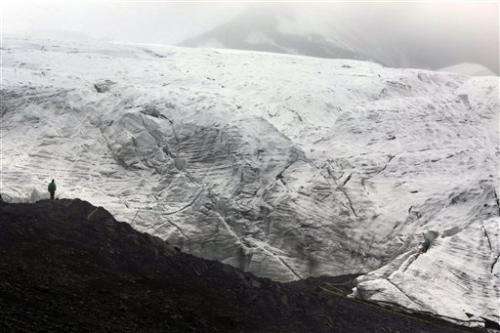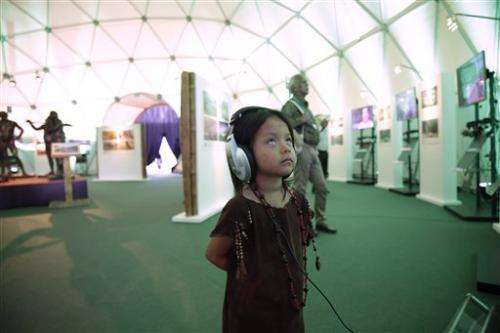Sticky issues re-emerge at UN climate talks

(AP)—The momentum from a historic U.S.-China pact to resist global warming is showing signs of fading at U.N. climate talks as the familiar rich-poor conflict persists over who should do what to keep the planet from overheating.
Last month's joint emissions pledges by Presidents Xi Jinping and Barack Obama spurred hopes for a global climate deal a year from now in Paris. But heading into the second half of the Dec. 1-12 Lima talks, China and the U.S. remain on opposing sides on a series of vital issues.
Time remains to work things out; environment ministers are just starting to arrive. The conference's high-level phase begins Tuesday.
Some main areas of discord:
The rulebook
Governments must agree on what information they should be obliged to provide in the greenhouse gas-reduction pledges they make for the Paris agreement. The end of March is the U.N.-set deadline for submitting pledges, though many countries including China have said they may need more time.
The U.S. and other developed countries want contributions to be focused on slashing or curbing emissions of carbon dioxide and other heat-trapping gases. They are resisting demands from developing countries including China and India—the world's No. 1 and No. 3 greenhouse gas polluters—to add financial commitments to help poorer countries tackle climate change.
A fight also has also erupted over whether to establish a review process so emissions targets can be analyzed and compared ahead of Paris. The U.S. and the European Union want a review but China, which has never before been required to take any climate action in the U.N. talks, has opposed that in Lima.

Give me five. or ten?
The Paris agreement would take effect in 2020 but it's not clear what period the initial emissions-reduction pledges would cover. The U.S. is pushing for a five-year commitment period and has already set its target for 2025.
The European Union favors a 10-year span and has set its target for 2030. China also backs a 10-year period.
Brazil has proposed a hybrid: Countries give firm five-year targets and "indicative" 10-year targets.
Unless countries agree on a common commitment period they will be out of step with one another and comparing their targets will be more complicated.
Show me the money

As usual, much time in Lima has been spent arguing about money. Rich countries long ago pledged to help poor countries limit emissions and cope with rising sea levels, droughts, floods and other impacts of climate change. In 2009 they agreed to commit $100 billion annually by 2020. But the financing so far isn't close to that level and poor countries say they need the money now.
A new Green Climate Fund reached $10 billion in pledges this week—including $3 billion from the U.S. Developing countries including China, which is not a contributor, say that is far too little given the urgent need for immediate action. Some scientific models say greenhouse emissions need to halt by mid-century or damage from climate change could be irreversible.
The blame game
The Paris agreement is supposed to be "applicable to all," unlike the 1997 Kyoto emissions treaty, which required only developed countries to take action to fight climate change. For everyone else, it was voluntary.
The U.S., EU and other rich countries want to tear down a 1992 firewall that divides the world into developed and developing countries. The latter, from oil-rich Gulf states to the poorest of Africa, are in no hurry to remove the firewall because it makes clear that developed countries are more responsible than they for climate change.
The issue is among the most difficult in the U.N. talks and not likely to be resolved in Lima.
© 2014 The Associated Press. All rights reserved.



















